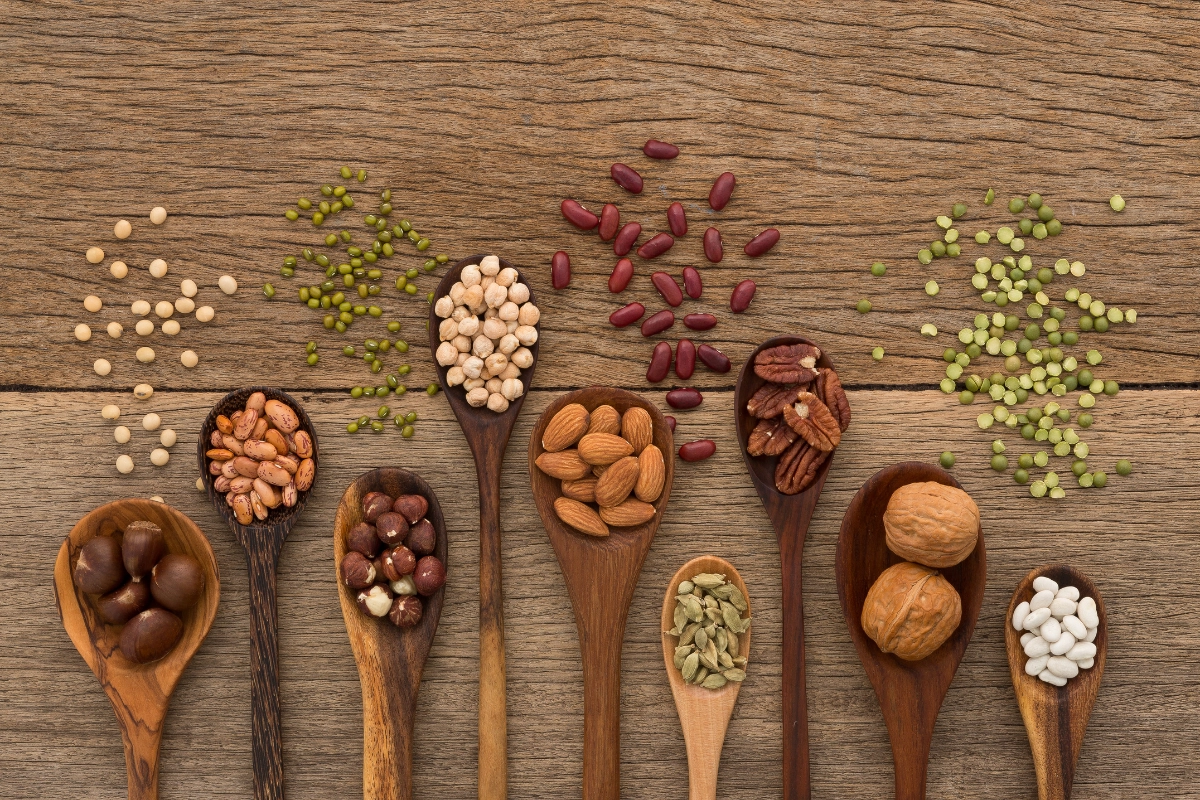Diet for a Healthy Gut starts with eating a diet rich in prebiotics, probiotics, and fiber. Would you like to know how to feed the good bacteria in your gut and promote a healthier microbiome?
Find support by eating foods that provide beneficial bacteria in your digestive tract and encourage healthy gut flora. Diet and the gut are intimately connected, as what we eat affects the living organisms in our digestive system. Research studies have shown that an unhealthy diet high in processed foods, added sugars, saturated fats, and refined carbohydrates can negatively affect the microbiota of your gut, leading to a host of health issues such as obesity and impaired immune system function. Eating a healthy, whole food-based diet can help maintain the balance of healthy bacteria in your gut and support optimal well-being.
Fermented Foods
Fermented foods such as yogurt, kefir, sauerkraut, kimchi, and tempeh are excellent sources of probiotics, which help maintain the balance of good and bad bacteria in your gut. Beneficial bacteria found in fermented foods have been linked to improved digestion and immune function. Reaping these benefits can be as simple as adding a serving or two of fermented foods to your daily meals.
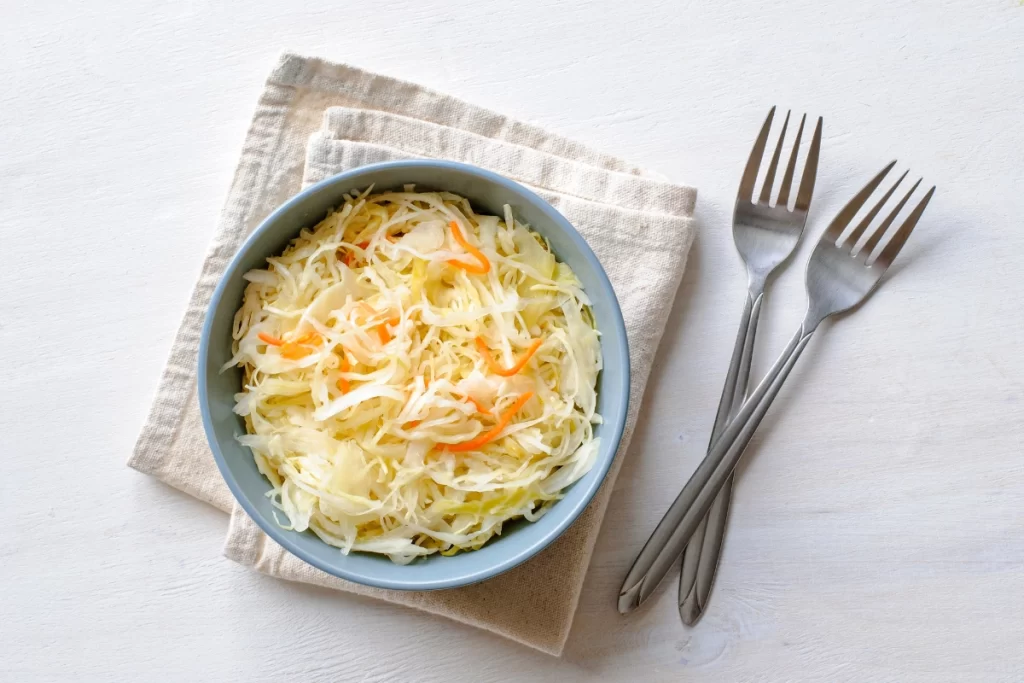
Best fermented foods for gut health:
- Sauerkraut is a traditional and delicious fermented food that has been enjoyed for hundreds of years. It is made from cabbage and salt and is incredibly rich in probiotics, vitamins, minerals, and antioxidants that have benefits ranging from aiding digestion to reducing inflammation to boosting immunity.
- Kimchi is a spicy Korean side dish that’s made with fermented vegetables like cabbage, radish, or cucumber. It contains lactic acid bacteria which aids in digestion as well as provides numerous health benefits such as improving cholesterol levels, aiding in weight loss, and even fighting certain cancers.
- Kombucha is a type of fermented tea commonly enjoyed as a refreshing beverage with loads of health benefits due to its high concentration of beneficial probiotics. It helps boost your immune system, provides antioxidative properties, and increases energy levels while also aiding in digestion and gut health.
- Miso is a Japanese fermented seasoning made by mixing cooked soybeans with salt or koji (fermented rice) to form a paste-like substance. It’s very high in dietary fibers, proteins, and essential vitamins along with containing plenty of beneficial compounds like polyphenols and saponins. Miso provides numerous health advantages such as reduced cancer risk, controlling bad cholesterol levels, and protection against age-related cognitive decline, as well as others.
- Tempeh originally comes from Indonesia but has now become quite popular worldwide due to its multiple benefits to our health when ingested regularly alongside other healthy foods like veggies or whole grains. It consists mostly of protein with small amounts of fatty acids like omega-3 & 6 which make it incredibly useful for weight management, heart disease prevention, and even overall prevention against chronic diseases like diabetes or cancer due to its anti-inflammatory effects on the body when consumed daily.
- Yogurt is one the most widely eaten fermented foods around the world with good reason; it’s delicious! But it also provides loads of probiotic bacteria that have many beneficial qualities including improved digestion as well as increased absorption of nutrients from other foods within our diet. Iron is an essential mineral that can be hard to absorb. Yogurt’s naturally acidic environment helps break down iron more easily in our bodies making it even more available to us with the addition of yogurt.
- Natto IE; fermented soybeans, is packed full of amino acids known for their numerous health abilities like blood clotting prevention plus skin repairing abilities among others – making them an amazing source for vegans who are looking for both these qualities without having to consume pure animal protein sources by themselves! A staple food within Japan, they’re relatively easy to make at home. Why not give them a go if you want something new, plus delicious tasting, planned on your next dinner night?
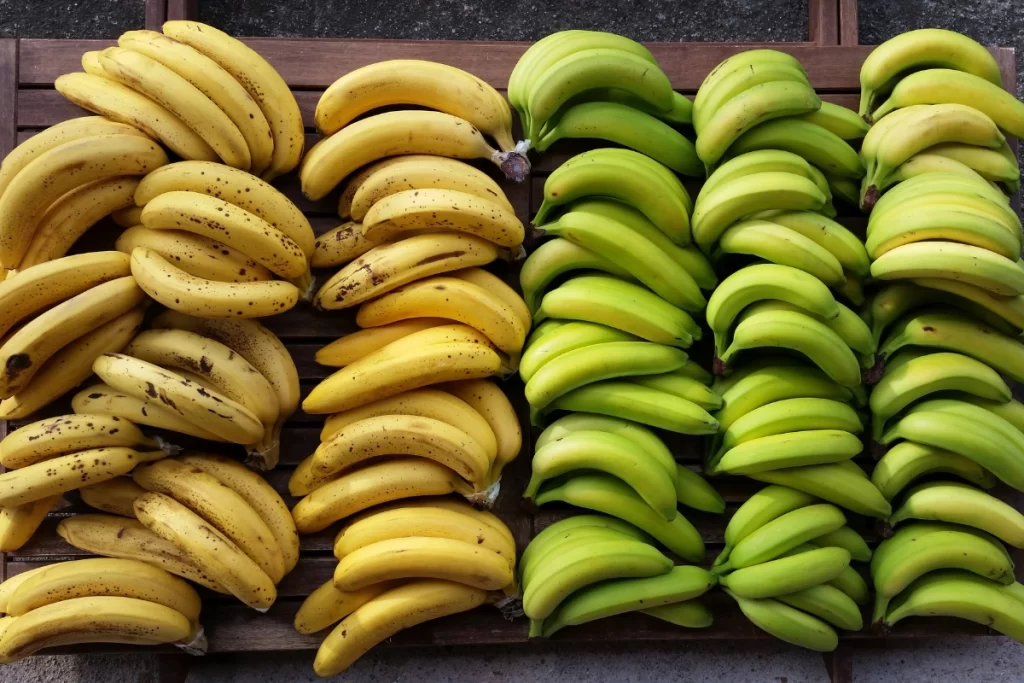
Prebiotic Rich Foods
Prebiotics are a type of dietary fiber that help feed beneficial bacteria found in your gut. Adding prebiotic-rich foods to your diet can help support the growth of good bacteria, promoting digestive and overall health. Some of the best prebiotic foods include bananas, onions, asparagus, garlic, apples, artichokes, oats, and flaxseeds. Incorporating two or three servings of these into your daily meals is an easy way to maintain a healthy gut microbiome. Eating these foods regularly can help support digestive health by promoting the growth of beneficial bacteria in the gut microbiome.
Optimize Your Gut Health with these Prebiotic Rich Foods:
- Asparagus is a great source of prebiotics, containing a complex carbohydrate that feeds beneficial bacteria in the gut. It has a mild, slightly sweet flavor and pairs well with just about any dish. Start your day off right with stir-fried asparagus, or egg-asparagus omelet, and try adding it to salads and pasta dishes for an extra boost of prebiotic fiber.
- Bananas are also a good source of prebiotic fiber. Eating two to three bananas per day can increase the number of beneficial bacteria in your gut and support healthy digestion. Try using ripe bananas for smoothies, baking vegan banana bread, or adding diced pieces to Greek yogurt for a delicious snack.
- Garlic is renowned for its flavor, but it’s also packed with gut-supporting prebiotics. The bulb contains inulin, a form of dietary fiber that supports beneficial bacteria in the gut. Try adding garlic to your favorite foods or roasting the cloves for use in dips and sauces. Eating two to four cloves of raw garlic a day can help optimize your gut health.
- Jerusalem artichokes are a variety of sunflower (Asteraceae) that belongs to the tuber family. High in the prebiotic fiber known as fructooligosaccharides (FOS) and inulin, they support gut health by providing food for beneficial bacteria like Lactobacilli and Bifidobacterium. To get the most nutritional benefit from Jerusalem artichokes, try steaming or boiling them instead of frying them. You can also add these tasty tubers to salads, soups, or stews for an extra nutrition boost.
- Onions are a popular kitchen staple and an excellent source of prebiotics. With high levels of FOS, onions help feed the “good” bacteria in your gut. When eaten raw or cooked, onions help to keep the digestion system strong while promoting elimination and improving the absorption of nutrients. Try adding thinly sliced onion to soups and salads to reap its prebiotic benefits.
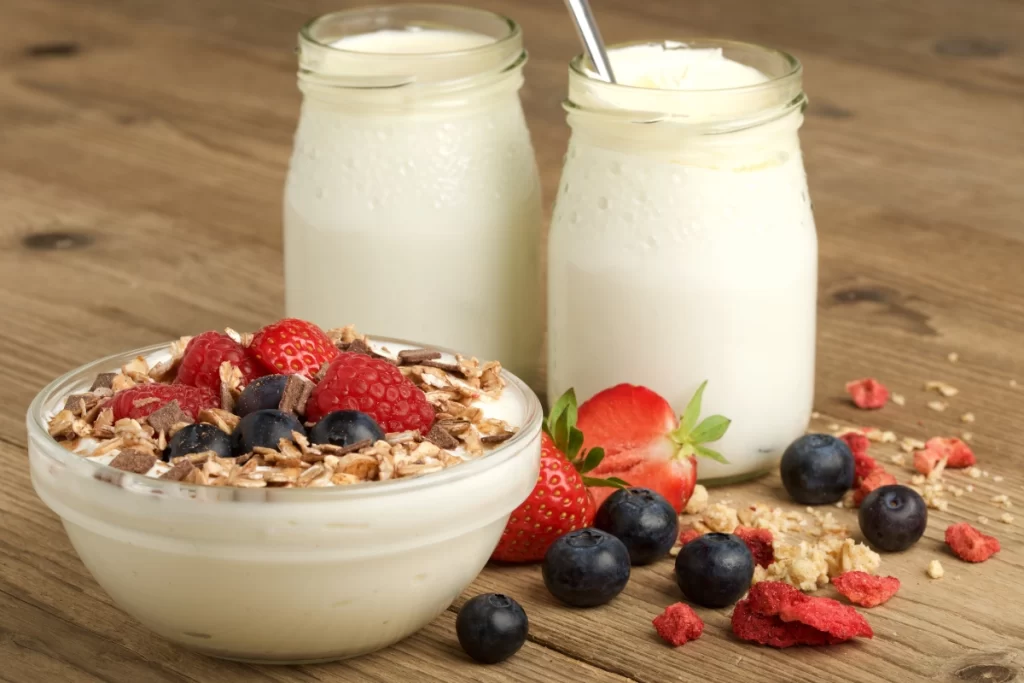
Probiotic-Rich Foods, Diet for a Healthy Gut
In addition to prebiotic-rich foods a diet rich in probiotics can also improve your gut health. Probiotics are live bacteria and yeasts that provide numerous health benefits when consumed regularly. Yogurt, tempeh, kimchi, and miso are great sources of probiotics that can aid digestion and boost the immune system. Consider adding these foods as a part of your regular diet to keep your gut microbiome in balance. Many probiotic foods are also fermented foods and are included in a diet for a healthy gut.
Plant-based Proteins & Healthy Fats
Plant proteins such as legumes, nuts, and seeds have been found to be beneficial for the gut microbiome. These plant-based proteins are a source of healthy fats, which help the body absorb important nutrients and promote better digestion. Healthy fats can also reduce inflammation, which is linked to poor gut health. Make sure to choose high-quality sources of plant-based proteins and healthy fats, like extra virgin olive oil and avocado, when looking to improve your gut microbiome through diet.
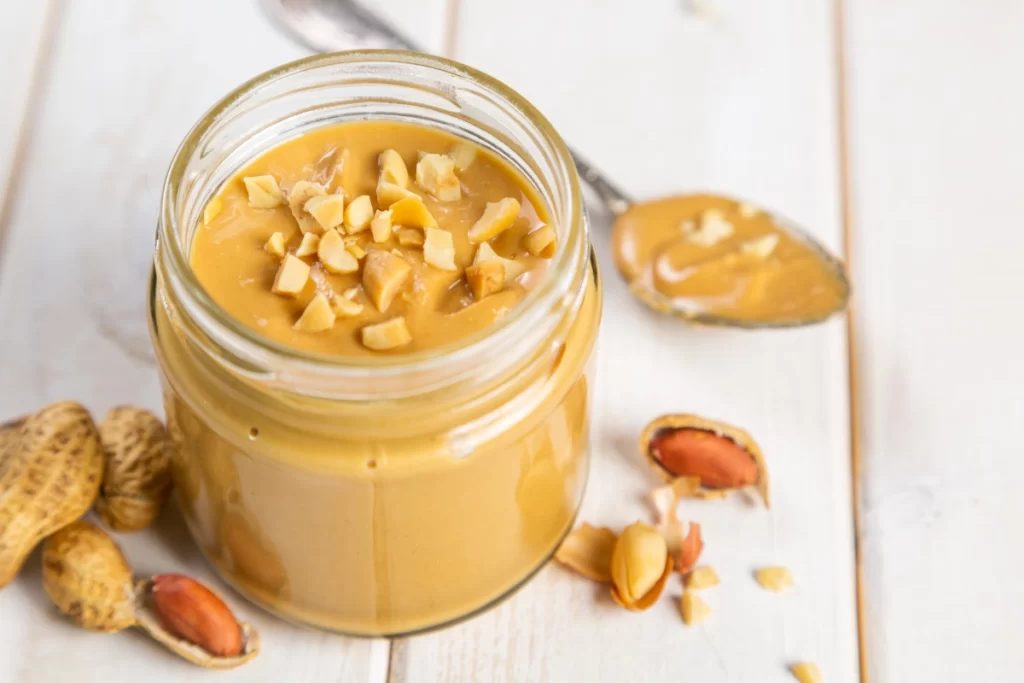
Plant-Based Proteins & Healthy Fats:
- Soy is one of the most widely eaten proteins through plant-based sources, and it’s incredibly versatile. You can make traditional dishes like tofu or tempeh, but you can also enjoy processed forms such as veggie burgers and soymilk. Soy is a great source of essential amino acids, including leucine which boosts muscle recovery and growth, lysine for proper calcium absorption, and isoleucine to help with energy production.
- Lentils are an excellent type of plant-based protein that contains almost 18 grams of protein per cup once cooked. This legume is not just a great source of vegan protein, it also packs in fiber, iron, folate, manganese, and plenty of other nutrients. Lentils are highly versatile; you can pair them with almost any spice or flavor to customize them to your liking!
- Chickpeas (or garbanzo beans) are tasty little legumes that are both affordable and nutritionally balanced with 14 grams of complete protein per 1 cup serving. Chickpeas contain several key micronutrients such as iron and magnesium as well as vitamins like vitamins A and B6, making this the perfect snack food for those looking for a light, yet nutrient-packed vegetarian meal. Chickpeas are the base for hummus so paired as a dip with veggies you have a powerhouse food and tasty snack all in one!
- Quinoa is possibly the most popular plant-based superfood out there thanks to its incredible nutritional value. Quinoa is considered a “complete” protein because it contains all nine essential amino acids that our bodies need. Its high content of essential fatty acids like omega 3s makes quinoa an incredibly healthy choice in place of animal proteins against heart disease and other chronic conditions that lead to inflammation in the body.
- Hemp seeds are one of nature’s highest sources of vegan proteins; each gram contains 9 essential amino acids needed to support muscle development without unnecessary saturated fats or antibiotics from animal sources. Hemp seeds can be incorporated into smoothies, over salads, or even baked goods for added texture and nutrition without drastically altering texture or taste.
- Nutritional yeast is an ingredient often used in vegan cooking due to its high content of B vitamins (such as Vitamin B12 which isn’t found naturally in high amounts on any other single food source!) It’s gluten-free; please note that it has a mild cheesy flavor making it great for topping salads or roasted vegetables as well for added flavor without adding calories and fatty oils. One-quarter cup delivers 8 grams of complete vegan proteins along with enzymes from the fermentation process. Fermented foods contain naturally occurring reactive properties which promote microbiome balance within gut bacteria creating a powerhouse vegan choice checkmate.
- Peanuts & Peanut Butter contain quite the punch when it comes to plant-based proteins. Besides being rich in unsaturated fats, which boast their own health benefits, peanuts are packed with important minerals (like potassium, zinc, copper, etc.). They also contain vitamins E, and B6 as well as over 6 grams of raw vegetable proteins in every ounce making them an incredibly filling, nutritious, and delicious addition to any diet. Even better opt for one of the many creamy-flavored peanut-butter spreads available.
High Fiber Foods
Eating high-fiber foods like beans, whole grains, and vegetables is one of the best ways to boost gut microbiome health. High-fiber foods are rich in prebiotics, which are fermented by healthy gut bacteria to produce beneficial compounds called short-chain fatty acids (SCFAs). These SCFAs have been linked to improved gut health as well as better immune system function and decreased risk of chronic diseases. Make sure to include plenty of fresh fruits, veggies, and legumes in your diet if you’re looking to support your gut microbiome health through diet.
However, if you’re living with IBS-D, finding well-tolerated fiber foods can be a challenge. Eating the right kinds of fiber can make a big difference when it comes to managing symptoms of Irritable Bowel Syndrome – Diarrhea (IBS-D). Here are some IBS-friendly fiber foods that can help ease your digestion and provide you with the nutrients your body needs.
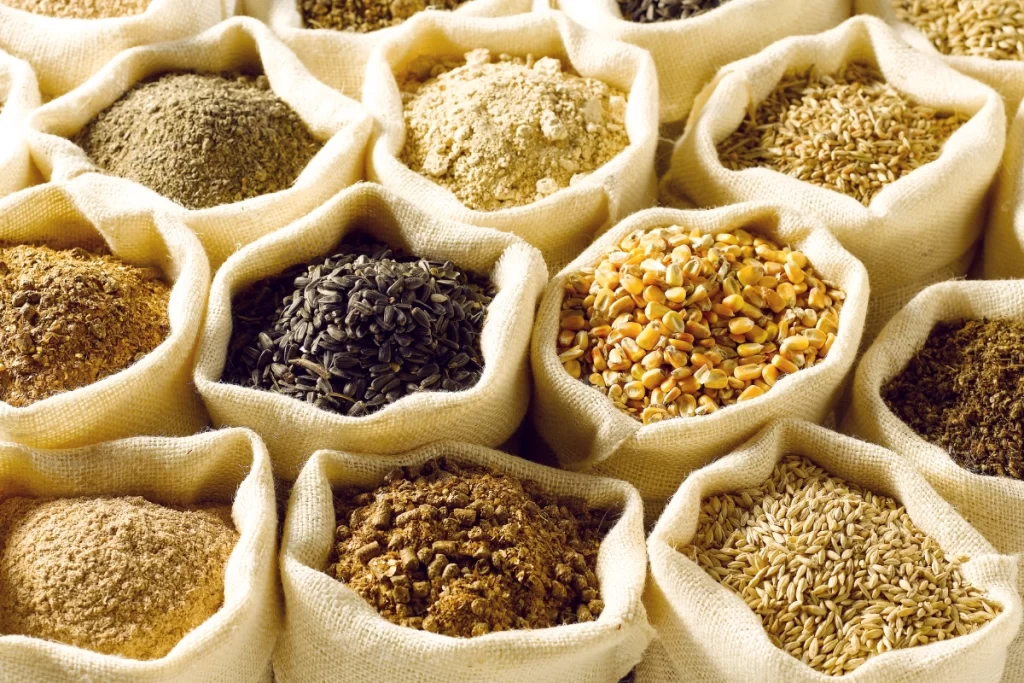
High Fiber Foods like Beans, Whole Grains, and Vegetables
- Green (unripened) bananas are a good source of soluble fiber and can help to soothe IBS-related symptoms. Try adding this mildly sweet fruit to your smoothies or oatmeal for added taste and texture. In addition, green bananas contain a prebiotic known as inulin that helps support healthy gut bacteria.
- Apples are a well-tolerated fiber food to include in your IBS-D diet. Snack on a small apple or mix slices into your favorite yogurt for a balanced snack. Apples contain both soluble and insoluble fibers, which can help solidify stool and add bulk to it as it moves through the gastrointestinal tract. As long as you don’t go overboard, apples should be well tolerated by those with IBS-D. You can remove the peeling to be even more IBS-D-friendly.
- Raspberries and other berries are also well-tolerated fiber food for people with IBS-D. High in soluble fiber, they help to add bulk to stools as they pass through the GI tract. The small seeds also provide a gentle scrubbing action when swallowed which can help soften the stool and make it easier to pass. Enjoy a handful of raspberries or whip up your own raspberry smoothie with frozen fruit and coconut milk.
- Rutabaga is a root vegetable that’s particularly high in insoluble fiber. This type of fiber is excellent for promoting regular bowel movements and provides bulk which can help soften the stool, making it easier to pass. This veggie is best enjoyed mashed with a bit of butter and salt or diced into cubes and added to roasted or steamed dishes.
- Oat bran is a fantastic source of both soluble and insoluble fiber, two types of fibers that your body needs for proper digestion. It’s also an incredibly versatile ingredient that can be added to sauces, smoothies, salads, yogurt parfaits, and more. This type of fiber absorbs water and becomes sticky, which not only makes it easier to pass through the intestines but also helps slow down digestion which allows you to better absorb nutrients from other foods.
Mastication of food while chewing is also important for people with IBS-D, especially when eating fibrous foods. Healthy individuals may add other types of fiber to their diet if tolerated.
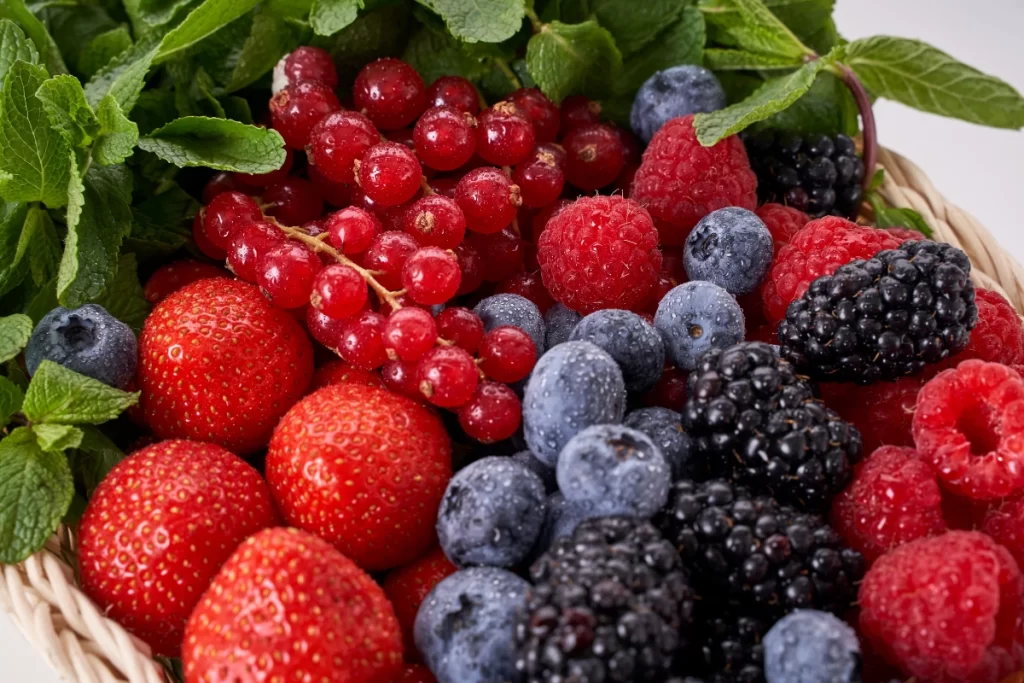
There are two types of fiber, soluble and insoluble. Soluble fiber dissolves in water and forms a gel-like substance that is beneficial for digestion. Soluble fiber helps reduce cholesterol levels and control blood sugar by slowing the absorption of carbohydrates and delaying the emptying of your stomach after meals. Insoluble fiber does not dissolve in water and passes through your digestive system nearly intact. It helps add bulk to your stool and encourages regularity. It may also help reduce the risk of digestive conditions such as diverticulitis, hemorrhoids, and bowel obstruction.
In Conclusion, Diet for a Healthy Gut
In conclusion, a diet for a healthy gut is easy to incorporate into your eating routine. The diet-gut connection has been gaining attention in recent years, with studies showing how our dietary choices can have a major impact on the quantity and type of bacteria living inside our gut, as well as its overall health. Research has found that a diet high in fiber lowers the risk for numerous health issues associated with gut dysfunction, including obesity, diabetes, inflammatory bowel diseases, and even poor mental health. Additionally, studies have found that following a variety of diets low in processed foods and rich in healthy fats and nutrients can help improve metabolism and ultimately lead to better digestive health.
ADD ADHD Alzheimers antioxidants arthritis Best Sources of Omega 3 6 9 Fatty Acids cancer exercise fatty acids fatty fish fermented foods fish oil flax seed oil health benefits healthy diet Healthy Lifestyle healthy lifestyle benefits healthy lifestyle food Healthy Weight loss heart disease herring hummus indoor herb garden grow light indoor herb garden kits indoor herb garden on wall indoor herb garden planters jackfruit joint stiffness mackerel meditation mental health mushrooms oily fish omega-3 omega-3 fatty acids omega 3 6 9 risks and side effects Omega3tips.com salmon sardines super foods tuna unplug vitamins Weight loss wellness
Read more about living healthy with omega-3s here.
Read more about probiotics here.
Diet has an important role in our gut health, with the potential to both improve or worsen the balance of bacteria in our digestive system. Eating a balanced diet full of whole grains, vegetables, lean proteins, and healthy fats can help promote positive changes in your gut microbiome. Additionally, probiotic foods and beverages like kefir yogurt and kombucha can provide beneficial bacteria that support gut health.

